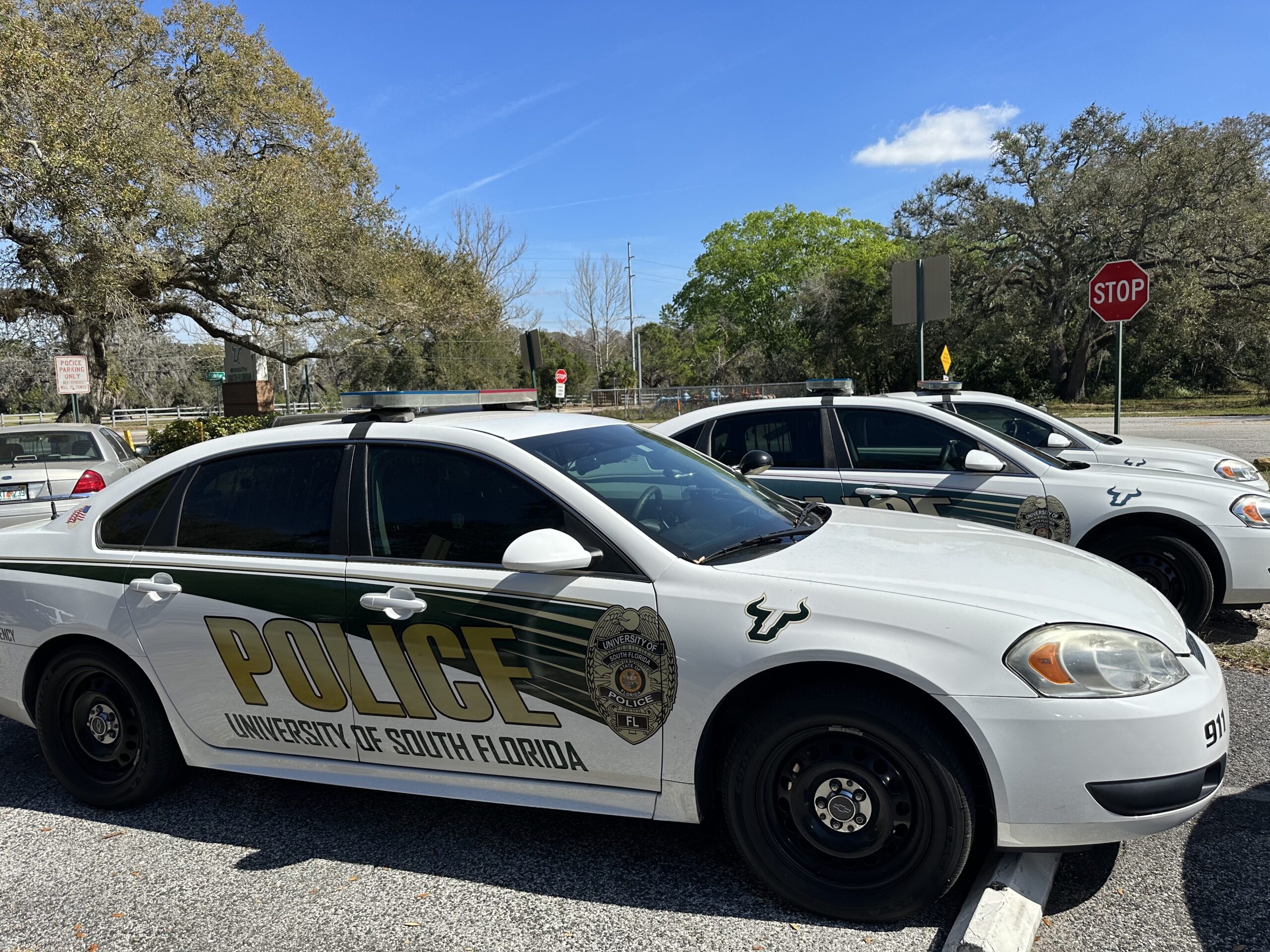How have body cams impacted USF? UP representative weighs in

Following the implementation of body cams for its officers in August, UP Public Information Representative Michael Lavelle said they have helped provide an unbiased viewpoint of officer-student interactions on campus.
Lavelle said every “sworn employee” received a body cam, which totals 47 officers at the Tampa campus and 17 at St. Pete. UP has a total of 55 cameras, which will last them through their projected hiring rate in 2024, Lavelle said.
St. Pete is projected to distribute three more body cameras through next year, while Lavelle said the Tampa campus is expected to maintain the number of officers wearing cameras.
The body cams are helpful to better understand a situation when a complaint is raised, according to Lavelle. If a “use of force” incident is filed, Lavelle said UP must conduct a mandatory review of body cam footage.
A use of force incident is when an officer interacts with an unwilling person and force is used, either in self defense or to mandate compliance.
Five cases have required UP to review body cam footage, Lavelle said. However, the reasons or results of these reviews were not disclosed at the time of publication.
Lavelle also said sergeants are required to do three random video reviews for each officer and their teams each month.
While officers are required to wear them while on duty, Lavelle said the cameras only record when an officer manually turns on their emergency lights. Therefore, the cameras don’t overload on storage and only record when a student-officer interaction occurs.
Lavelle also said officers have been receptive to the cameras, and none of them have raised concerns about them.
The implementation of the cameras came with initial bugs and kinks to work through, such as syncing up the software and the equipment. However, Lavelle said the company that provided the cameras, Axum, was able to resolve the issues smoothly.
Lavelle said the body cams have been a positive change for UP, and their purpose will benefit both officers and students.
“Any opportunity that demonstrates full transparency serves everyone in the best interests,” he said. “Because you have that opportunity to present both sides of the story and you can see firsthand what the facts of any particular situation are.”
TRACE program
Counselors from the TRACE program, which was implemented at the beginning of this year, have been utilized on 13 separate occasions at the time of publication, Lavelle said.
TRACE is a program that assists officers in situations pertaining to mental health by giving students the opportunity to talk through their situation with a counselor through a video call. Officers responding to a welfare check are equipped with tablets that students can request or consent to use to talk to a mental health professional that could provide more insight on the situation.
Special Operations Captain of USFPD Martin King said in a February Oracle interview that while officers go into these situations with a certain level of training, they don’t have the same expertise as a licensed clinician. Before its implementation, King said officers were only allowed to Baker Act individuals going through a mental health crisis.
The program is active from 9 a.m. to midnight, and Lavelle said there are two to three counselors throughout this time period that are available to speak with students.
A 90-day evaluation was enforced to see if the hours of the program needed to be extended. However, Lavelle said the results of the assessment indicated the current hours were “meeting the needs of the community.”
About 28 students have declined the opportunity to speak with a counselor since the beginning of this year, according to Lavelle.
Despite the number of rejections over doubling acceptances, he said the program has been a success for UP and students have seemed to respond well to it.
It was not confirmed if the program would receive another evaluation in the future at the time of publication.







